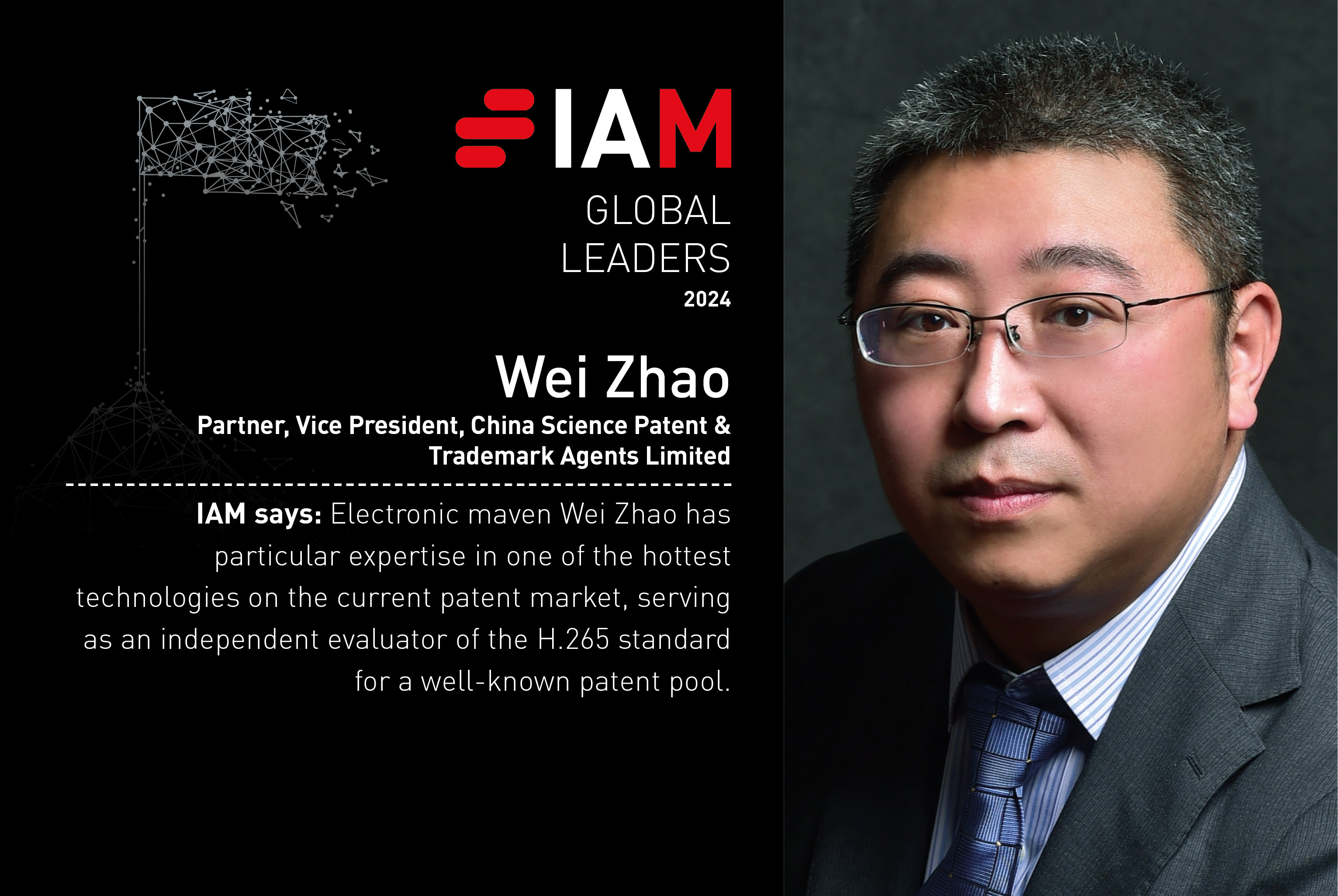Wei Zhao
 Given that business leaders are not always conversant in intellectual property, what tips can you share for engaging – and ensuring buy-in from – key stakeholders?
Given that business leaders are not always conversant in intellectual property, what tips can you share for engaging – and ensuring buy-in from – key stakeholders?
In China, more importance is being placed on intellectual property, from the state to corporations. There are many opportunities to involve business leaders in those high-end IP forums, which are also good for establishing contacts, while sponsors’ sub-forums are always interesting. IP-related disputes and litigation are key points of discussion, particularly the courts’ growing compensation/damage amounts, possible economic losses or benefits from IP activities and competitors’ strategies and actions.
Customer-specific lectures also bring us into clients’ IP groups’ conversations. With business development, more biddings are valuable when IP matters are involved. Not only do we need the clients, but the clients need us. With the common goal of protecting their intellectual property and benefitting from IP assets, a wide range of topics can be shared between our clients and us.
One-third of your firm’s patent attorneys have worked in R&D in universities, research institutes and industries before practising law. What are three ways this wealth of technical experience benefits clients?
First, our clients can confidently expect much smoother and easier communication with our patent attorneys, particularly when it comes to their grasp of inventive ideas, understanding of technical evolution and familiarity with industrial language.
Second, the technical solutions to be protected and those in the prior art are well understood, which is key to drafting and prosecution work. A perfect mapping can be established between possibly infringing products and claim languages with correct technical feature and function identifications in litigation.
Third, our patent attorneys may also play a dual role as both a technical and legal expert to explore and generalise inventors’ ideas, provide alternative solutions and achieve the broadest protection scopes for IP assets. These assets will be deemed much more valuable in the clients’ portfolios.
How do you expect the Chinese patent litigation landscape to evolve in the next five years?
With the huge number of applications and the enhancement of patent protection awareness, the number of litigation cases will gradually increase, as will the amount of compensation/damage supported by the Chinese legal system.
A practitioner’s role will become critical. With the rapid development and increasing application of emerging technologies (eg, blockchain, AI, the metaverse, genetic engineering and biopharmaceuticals), new issues and modes of litigation are emerging, which will require changes in laws, policies and regulations and make it more difficult to determine complex technical facts and apply laws and regulations.
In the past, most Chinese companies are defendants challenged by foreign parties. Nowadays, more Chinese parties try to monetise the business values of their IP rights through litigation. There will be more Chinese companies and sophisticated patent practitioners involved in patent litigation, making it more challenging.
How is the development of AI tools affecting your practice?
The integration of AI tools into the industry will enrich the content and improve the quality and management of our practice. AI tools are conducive to improving efficiency, especially in documentation processes. AI tools have also shown their great power and assistance for agents to improve their intelligence.
AI tools can do more manual work, giving patent attorneys more time to focus on technical and legal aspects. They also help to minimise procedural mistakes and reduce human resources in clerk work. We believe that AI tools and AI-generated content will help us work more efficiently. There have been some attempts to draft patent application documents with AI tools, but the results are not as good as were expected.
However, AI is not always trustworthy and sometimes suspicious. It is still a hot topic as to whether a full AI or an AI-assisted system can be relied upon or integrated into the real world – maybe in the future, but not now.
What led you to a career in intellectual property – and what advice do you have for anyone considering following the same path?
When I discovered the career upon graduation, the crossover between technical industries and legal services attracted me most, as it allows me to pursue my passion for the development of the most advanced technology and also consider different legal perspectives. Intellectual property highlights the value of science and culture. Compared to traditional tangible assets, intellectual property will become increasingly valuable with the development of science and culture.
As for advice, maintain carefulness, patience and passion in your daily work. Fine details and good working routines lead to final success.
Wei Zhao
Partner, Vice President
[email protected]
Wei Zhao is a partner at China Science Patent & Trademark Agents. He deals with IP prosecution, litigation and licensing matters in China. His areas of particular experience include patent prosecution, litigation, SEP evaluation and licence agreements. He graduated with a master’s degree from the department of electronics engineering at Tsinghua University, Beijing.